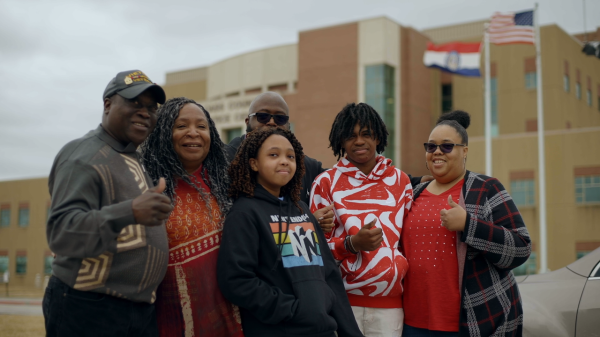
Save this storySave this storySave this storySave this story
The first thing that the filmmaker Catherine Hoffman noticed about the three generations of relatives who appear in the documentary short “Parker” was their humor. “They sound funny and joyful and playful,” Hoffman said. “I was drawn to that—the humor and the play.” Hoffman co-directed the film about the Kansas City family with Sharon Liese, who had known the Parker patriarch, Adolphus, for many years before they started working on the film. The short, set to jaunty jazz tunes and enlivened by chipper strokes of animation, follows the clan as they delve into some family history that ultimately leads the younger generations to change their last name. The family get into serious subject matter—the issues of identity, history, and parentage that are baked into names—but they never lose their sense of lighthearted affection.
The New Yorker Documentary
View the latest or submit your own film.

Together, Adolphus and his wife, Sedoria, gradually unspool the family history that led to their son—and his wife and children—to change their last name. The facts flow from an intimate story about the early days of Adolphus and Sedoria’s relationship, when they were young and uncertain. We can see Sedoria’s sense of vulnerability as she opens up about something so close to her heart. But there is nothing salacious in the revelations. Instead, we see a grandmother and grandfather going through photos of their younger selves looking sharp, and still laughing and flirting with each other.
The film follows the Parkers to the Black Archives of Mid-America, where the executive director, Carma Williams, talks with them about the history of naming conventions among Black Americans and the significance of getting to choose one’s own name. Hoffman told me that, when she was living in Kansas City, the Black Archives were a “home base” for her. “They’re kind of the keepers of the city’s history, in some ways, and a lot of the city’s history that a lot of folks don’t even know about.” Sedoria says to Adolphus, “It’s just kind of amazing just to think about it, how you became a Parker because of a slave name. But now, he’s becoming a Parker because he wants to be.”
Hoffman told me that she was especially motivated to make a film that celebrates Black joy. She said that the Parker family’s love and sweetness are “not something that you get to see Black families do and be onscreen. Those are very much things that exist in real life and exist in my life and the lives of my loved ones—but they weren’t something that I had ever seen reflected on the screen.” For Sedoria and Adolphus’s son Matt, the name change means carrying on a legacy. “Like, all the Parkers I know, they’re all very loving people. That’s something I will want to continue.”
Sourse: newyorker.com
